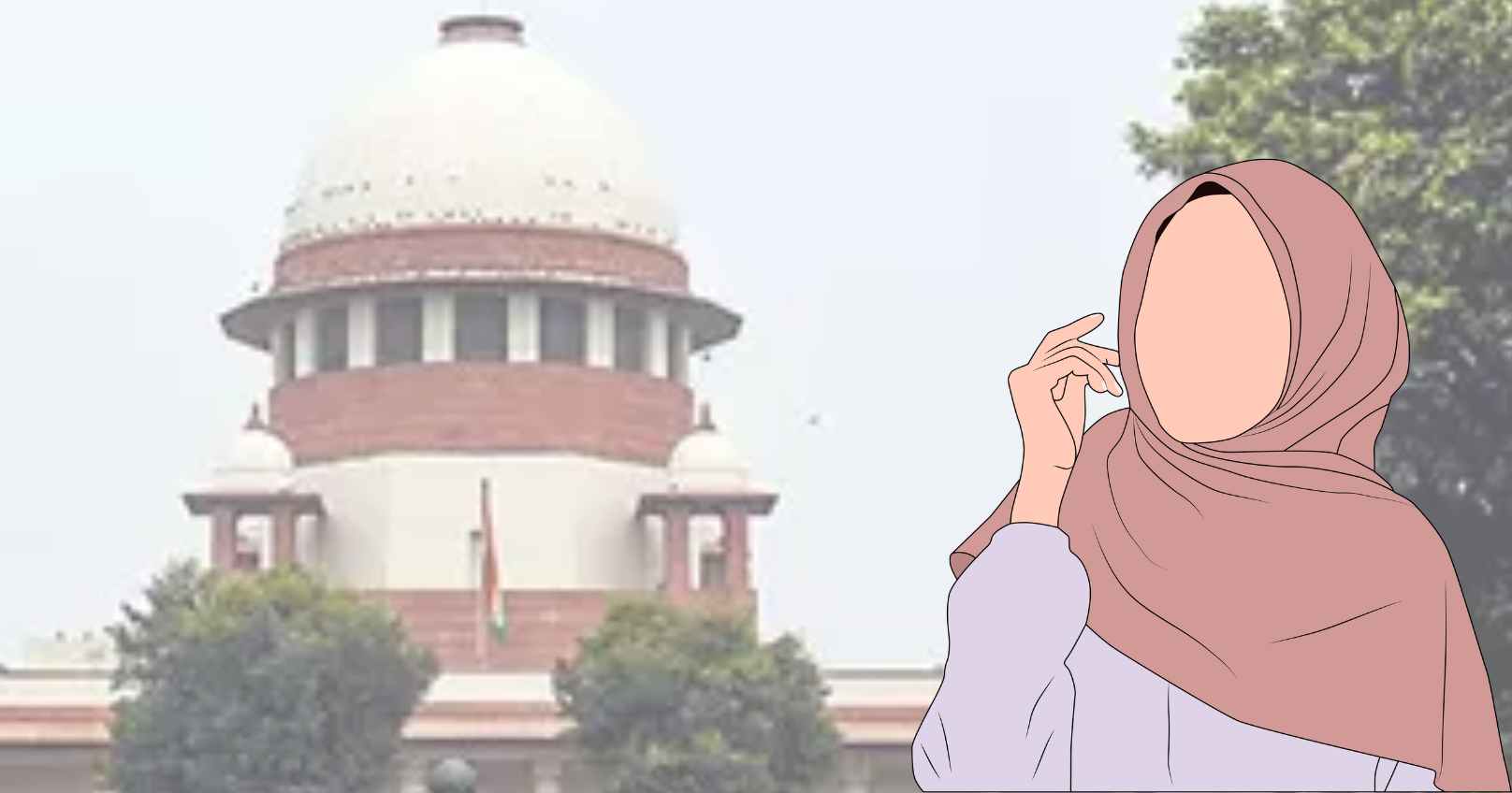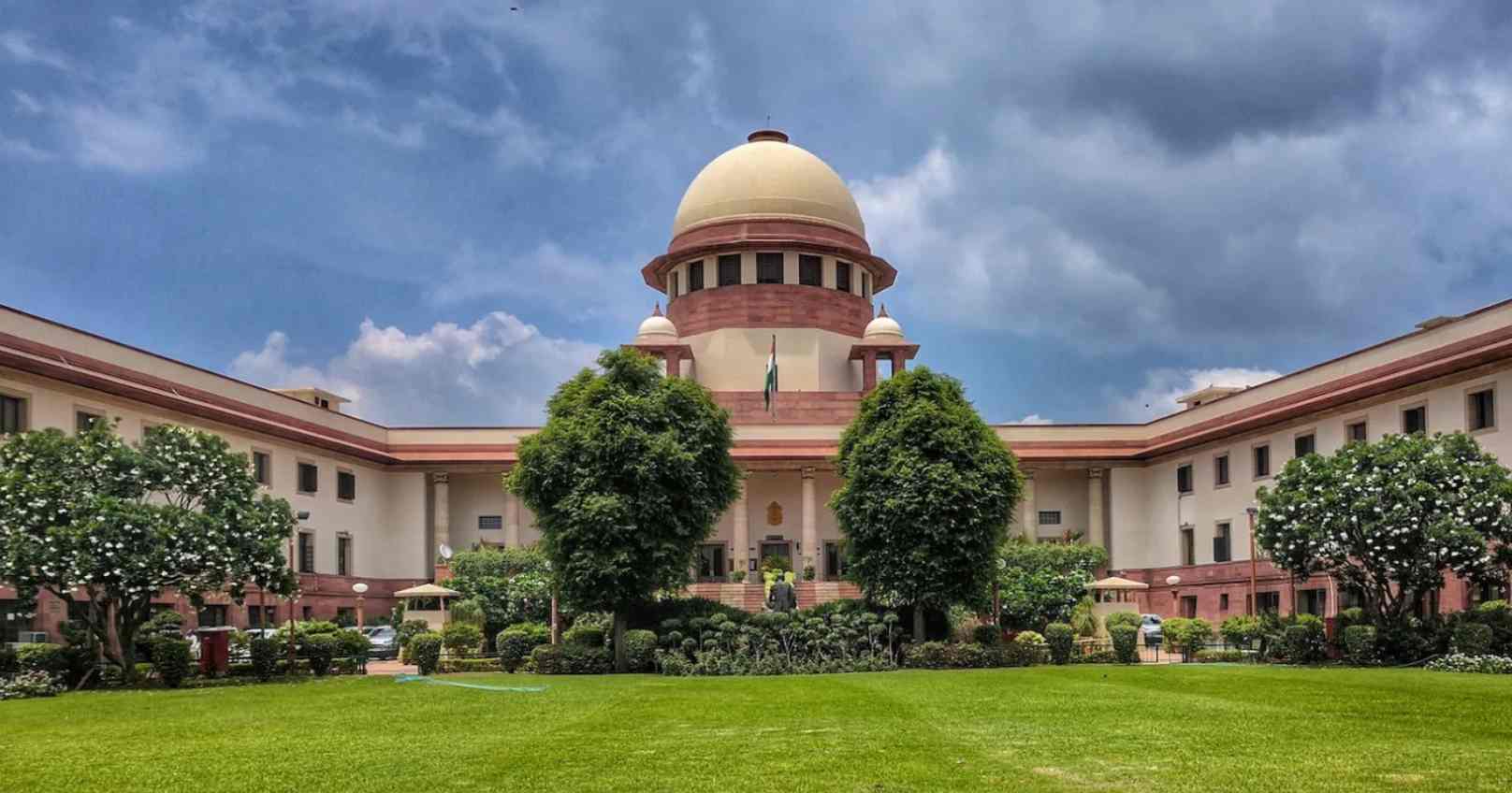In a significant judicial pronouncement heralded for its implications in advancing the rights of Muslim women, the Supreme Court recently clarified and reinforced their entitlement to seek maintenance under Section 125 of the Criminal Procedure Code (CrPC). This landmark decision resonates against a backdrop of historical ambiguities stemming from conflicting interpretations and rulings across various high courts.
The apex court's bench comprising Justices B V Nagarathna and Augustine George Masih underscored that Section 125 CrPC, which pertains to the maintenance of wives, children, and parents, remains universally applicable regardless of religious affiliation. This inclusivity reaffirms the equality of women under the law, countering any misconceptions regarding its application under personal laws.
This appeal challenged a decision by the Telangana High Court dated 13.12.2023, which had modified a Family Court's order from 09.06.2023 in M.C. No. 171 of 2019. The High Court had reduced the interim maintenance payable by the Appellant from INR 20,000 to INR 10,000 per month under Section 125 of the Code of Criminal Procedure, 1973 (CrPC). The Appellant, who had divorced Respondent No. 02 through triple talaq in 2017, argued that the provisions of Section 125 CrPC were superseded by the Muslim Women (Protection of Rights on Divorce) Act, 1986. He contended that the 1986 Act provided the exclusive remedy for maintenance claims by divorced Muslim women, and filing under Section 125 CrPC was not applicable. The dispute had arisen after the Respondent initiated criminal proceedings against the Appellant and sought interim maintenance during the iddat period, which the Appellant claimed to have offered but was refused. The appeal sought to establish the correct legal procedure for maintenance claims by divorced Muslim women under the applicable statutes.
Historical Evolution of Section 125 CrPC
The historical evolution of Section 125 of the Code of Criminal Procedure, 1973 (CrPC) reflects a transformative journey in securing maintenance rights for vulnerable segments of society, particularly women, across religious boundaries. Enshrined with the objective of alleviating socio-economic distress, Section 125 CrPC emerged as a pivotal statutory provision aimed at ensuring financial support for wives, children, and parents who are unable to maintain themselves.
The purpose of Section 125 of the Code of Criminal Procedure, 1973 (CrPC) is to prevent vagrancy and destitution by providing a legal procedure for individuals claiming maintenance rights. However, the Supreme Court clarified in the case of Inderjit Kaur v. Union of India (1990) 1 SCC 344, particularly concerning wives, that such entitlement is not absolute and remains subject to final determination by the appropriate courts regarding the rights of the parties involved. The court emphasized the significance of the phrase "unable to maintain herself," placing the burden of proof on the wife to demonstrate her inability to support herself. Moreover, it is essential to establish that the husband possesses adequate financial resources to maintain her but is neglecting or refusing to fulfill this obligation. This provision, rooted in the principles of Articles 15(3) and 39(e) of the Constitution of India, embodies the state's obligation to provide equal protection and support to abandoned spouses, neglected children, and elderly or disabled parents.
In the context of Muslim personal law, which governs matrimonial relations among Muslims, Section 125 CrPC stands as a secular provision applicable uniformly to all citizens, irrespective of their religious affiliations. This inclusivity was reaffirmed in the aftermath of the landmark case Mohd. Ahmed Khan v. Shah Bano Begum and Ors. (1985) 2 SCC 556 where the Supreme Court clarified that Section 125 CrPC forms an integral part of the criminal procedural framework, distinct from personal laws. The court's decision underscored that every spouse, regardless of religion, bears a legal obligation to provide maintenance to their wife until her remarriage.
However, the enactment of the Muslim Women (Protection of Rights on Divorce) Act, 1986 marked a significant milestone following the Shah Bano case, introducing specific provisions governing maintenance rights for divorced Muslim women during the iddat period. Section 3 of the 1986 Act delineates that divorced Muslim women are entitled to reasonable financial support during this period, thereby limiting the scope of broader interpretations that could potentially conflict with personal laws.
Further clarity on the intersection of Muslim personal law and maintenance rights under Section 125 CrPC was provided in the case of Danial Latifi v. Union of India (2001) 7 SCC 740. Here, the Supreme Court distinguished between mehr (dower) and maintenance, emphasizing that the payment of mehr does not absolve the husband of his obligation to provide ongoing financial support to his divorced wife under Section 125 CrPC. This ruling reinforced the statutory intent of Section 125 CrPC in ensuring continuous and adequate support to divorced Muslim women beyond the iddat period.
The judicial journey towards gender justice and equality under the framework of Section 125 CrPC culminated in the case of Shayara Bano v. Union of India, where the practice of triple talaq was declared unconstitutional. The Supreme Court's decision highlighted the fundamental rights of Muslim women and emphasized the overarching principles of equality enshrined in the Constitution of India. Through a series of progressive judgments, the court endeavored to empower Muslim women by upholding their rights to maintenance and dismantling discriminatory practices rooted in personal laws.
It is further important to highlight here that the evolution of Section 125 CrPC reflects a dynamic legal trajectory aimed at harmonizing social justice imperatives with constitutional guarantees of equality. From its inception as a remedy for destitute spouses and dependents to its interpretation in light of evolving societal norms and constitutional principles, Section 125 CrPC continues to serve as a cornerstone in safeguarding the economic rights of women across diverse religious communities. The judiciary's progressive stance in interpreting and applying this provision has not only expanded its scope but also contributed significantly to advancing gender equality and empowerment in Indian society.
Arguments by the both the sides in the present case
In support of the Appellant's case, the learned Senior Advocate argued that the Muslim Women (Protection of Rights on Divorce) Act, 1986 (1986 Act) provides a specialized and advantageous remedy for divorced Muslim women compared to Section 125 of the Code of Criminal Procedure, 1973 (CrPC). Citing precedents such as M/s. Jain Ink Manufacturing Company v. Life Insurance Corporation of India (1980) 4 SCC 435 and Chennupati Kranthi Kumar v. State of Andhra Pradesh (2023) 8 SCC 251, he emphasized the principle that a special law prevails over a general law, particularly when conflicting statutes originate from the same legislature.
Furthermore, the Senior Advocate relied on Sections 3 and 4 of the 1986 Act, which include a non-obstante clause asserting their overriding effect on any other legislation in the same domain. Referring to Danial Latifi v. Union of India (2001) 7 SCC 740 and Iqbal Bano v. State of Uttar Pradesh (2007) 6 SCC 785, he underscored the legislative intent and transitional provisions of the 1986 Act to support the exclusive applicability of its provisions in matters concerning maintenance rights of divorced Muslim women.
In contrast, the amicus curiae, Mr. Gaurav Agrawal, contended that the remedy under Section 125 CrPC remains available to divorced Muslim women, asserting that the 1986 Act does not explicitly or implicitly bar recourse to secular statutory provisions for maintenance. He referred Danial Latifi and argued that fundamental rights under Articles 14, 15, and 21 of the Constitution of India should ensure equal treatment in matters of maintenance rights, regardless of religious affiliation.
Judgement by the Court
In addressing the issue of maintenance entitlements for divorced Muslim women, the court emphasized the principle of non-discrimination based on the laws under which they were married or divorced. The court began by elucidating that under the Muslim Women (Protection of Rights on Divorce) Act, 1986 (1986 Act), only those Muslim women divorced under Muslim law were covered under its provisions. Accordingly, Muslim women married under the Special Marriage Act, 1954, and subsequently divorced could not benefit from the 1986 Act but had to seek relief under either the Special Marriage Act or Section 125 of the Code of Criminal Procedure, 1973 (CrPC). Section 3 of the 1986 Act stipulated maintenance obligations limited to the iddat period, after which the husband's obligation to maintain ceased. In contrast, Section 125 CrPC extended maintenance rights to any divorced woman until remarriage, provided the husband had the means but neglected or refused to provide support. Notably, an amendment in 2001 removed the monetary ceiling previously imposed under Section 125 CrPC, rendering it a more comprehensive provision compared to the limitations of the 1986 Act.
The court underscored that Section 125 CrPC must apply universally to all divorced Muslim women, irrespective of the personal laws governing their marriages or divorces. It rejected any notion of restricting Section 125 CrPC's application based on the 1986 Act's narrower definition of divorced women. This interpretation ensured equitable treatment and upheld constitutional principles of non-discrimination under Article 15(1) of the Indian Constitution, safeguarding women's rights regardless of religion or personal law affiliations. Furthermore, the court noted that Section 5 of the 1986 Act allowed divorced couples to opt for CrPC provisions through mutual declaration, but such consent did not diminish the standalone applicability of Section 125 CrPC. This provision underscored the flexibility available to divorced women and their former husbands in choosing the legal framework for maintenance proceedings.
In conclusion, the court reaffirmed that Section 125 CrPC and the 1986 Act served distinct purposes and could operate concurrently, addressing different stages and aspects of maintenance rights post-divorce for Muslim women. It stressed the importance of empowering women through legal provisions that ensured financial security and residential stability, crucial for fostering strong family units and thereby contributing to a resilient society and nation-building. Thus, the court's reasoned interpretation and application of legal principles ensured that divorced Muslim women were not deprived of their entitlements under Section 125 CrPC, reinforcing their access to justice and equality under the law, regardless of their religious background or the laws governing their marital dissolution.
Conclusion
The judgement's impact is profound as it ensures equitable treatment of divorced Muslim women in matters of maintenance, irrespective of their marriage or divorce laws. By upholding the applicability of Section 125 CrPC alongside the 1986 Act, the judgement ensures that no woman is left remediless post-divorce. It sets a precedent for protecting women's rights under constitutional principles of non-discrimination, bolstering gender equality and access to justice. This decision not only affirms the importance of financial security and stability for women but also underscores the judiciary's role in interpreting laws to uphold societal values of fairness and inclusivity. In future, this judgement will guide courts in ensuring consistent application of legal provisions across diverse personal laws, thereby promoting social cohesion and reinforcing India's commitment to upholding women's rights in familial and societal contexts.
- The authors are Law Students in Himachal Pradesh National Law University and IPU, Delhi with keen interest in Constitutional & Criminal Laws.






